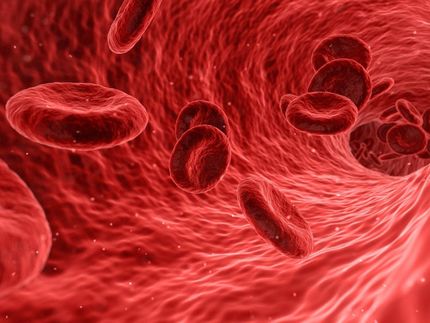New inhibitor found to combat drug-resistant cancer cells
The new substances could ensuring that the chemotherapy starts working again
Advertisement
A new substance could improve the treatment of persistent cancers. Researchers at Martin Luther University Halle-Wittenberg (MLU) and the University of Greifswald have developed a new inhibitor that makes drug-resistant tumour cells respond again to chemotherapy. The new substance blocks a protein in the cancer cells that normally transports the cancer drugs back out of the cells.

Symbolic image
Photo by National Cancer Institute on Unsplash
In addition to radiation therapy, cytotoxic agents, also known as chemotherapy, are frequently used to treat cancer. They prevent cells from dividing and thus cancer cells are unable to multiply unchecked. "Cytotoxic agents remain a very important form of treatment because they have a general effect, in other words, they work on different types of cancer," explains Dr Andreas Hilgeroth, a professor of pharmacy at MLU. However, some tumours are resistant to chemotherapy. They possess certain proteins that transport the drugs back out of the cancer cell.
Hilgeroth’s research group has now developed a new class of substances that inhibits one of these transport proteins: the multi-drug resistant protein 4 (MRP4). "It plays a particular role in leukaemia," says Professor Christoph Ritter from the Institute of Pharmacy at the University of Greifswald. The protein transports chemical messengers that appear to contribute to the development of that type of cancer. Ritter supported the team in the efficacy studies on special, drug-resistant cancer cell lines. The researchers were able to show that the cells treated with the new inhibitor transported fewer of the dye-labelled messengers and that the cytotoxic agents began having an effect again. "One of the substances showed particularly promising results," says Ritter, adding, it inhibited the protein much better than the best inhibitor known to date.
The new substances could have two simultaneously positive effects: "preventing the transport of cancer-promoting messengers and ensuring that the chemotherapy starts working again," explains Hilgeroth. If they prove to be successful in further tests, however, they will only be administrable in patients who have tumours containing the MRP4 transport protein. However, a pre-screening that uses markers to identify the type and characteristics of a specific cancer is already part of standard treatment. "There is an increasing focus on individualised medicine, especially in cancer therapy," says Hilgeroth. Drugs are used that are tailored to the type and characteristics of the cancer. A different inhibitor would then be used on a different transport protein.
The efficacy must now be confirmed in further preclinical trials. Researchers will try to establish how well the newly developed drugs specifically inhibit MRP4 in order to reduce side effects. If the substances are a success, several years of clinical trials will follow to confirm their efficacy in patients.



























































